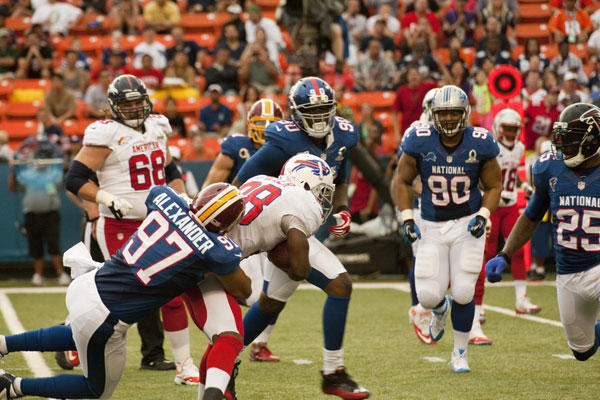More than 100 million Americans will tune in to watch the Denver Broncos and Carolina Panthers square off in Super Bowl 50 Sunday. However, it may not be much of a party for many service members and veterans with posttraumatic stress disorder (PTSD).
The emotions involved in the back-and-forth of a highly competitive game could be an issue for military members with PTSD.
"Anything that is going to ramp up emotions you have to be careful about," said Army Maj. Demietrice Pittman, a psychologist with Deployment Health Clinical Center. "Your emotions swing when you are watching the Super Bowl. Even if it is not your team it is usually a good matchup."
The circumstances in which the game is viewed can be also difficult, she said. Dealing with crowds may trigger flashbacks in PTSD patients. Going to restaurants, clubs or stadiums with large and loud gatherings can be challenging.
One military athlete with PTSD said he has to be careful about his game-viewing environment. Not only does he not go out for games, but his family is careful about who they invite to watch the game at home with them. If there are too many strangers and the game gets loud, it can trigger the kind of hyperawareness usually associated with being in combat.
"It is hard for me to enjoy it when I do not know who is around me," said Marine Sgt. Clayton McDaniel, who competed in the 2015 Warrior Games archery and shooting events, and won a gold medal in the pistol open competition.
McDaniel said that learning to manage his PTSD during competition has enhanced his understanding of what athletes face in big sporting events like the Alamo Bowl between the University of Oregon and Texas Christian University last month.
Oregon quarterback Vernon Adams was not playing well and McDaniel said he realized why: Adams was going through some of the same obstacles McDaniel faced.
"Learning how to take one shot at a time and manage my anxiety has really given me a different aspect on watching sports," the Oregon Ducks fan said. "I understand now, as an athlete, how [external] things can completely mess up your game."
Given that the military's major demographic is males 18-24 - also a major demographic for sports fans - Pittman said she definitely plans to talk with patients about the Super Bowl. Of course, she won't tell them not to watch, but she wants to make sure they are aware of possible challenges.
If you or someone you know is struggling with PTSD, or any psychological health concern, the DCoE Outreach Center is available 24 hours a day, seven days a week to answer your questions and point you to the right resources. Call 866-966-1020 or live chat with a health resource professional.










